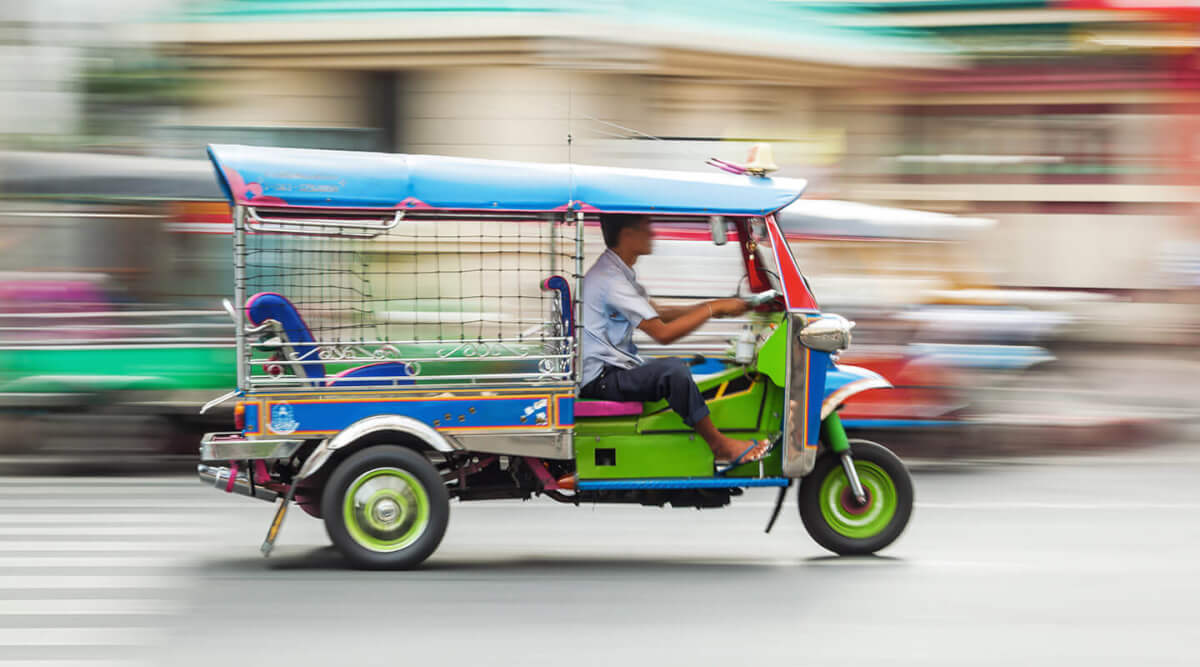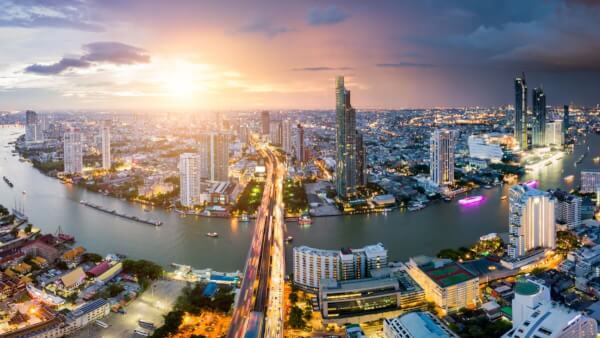Expat health insurance for Thailand: A complete guide
Learn everything you need to know about expat health insurance for Thailand, from finding the best providers to accessing healthcare and managing costs.

Idyllic beaches, vibrant cities, a cheap cost of living and a way of life so relaxed that it is practically horizontal. It's no surprise that the Land of Smiles attracts thousands of Britons every year who want to live and work in this delightful and fascinating part of South-East Asia.
In order to work in Thailand you will first need a B Visa, which you can get if you have a letter of approval from the Thai Ministry of Labour (your prospective employer will need to get this for you) and a letter from your employer. Once you have this visa you can enter Thailand and apply for your work visa. British people are entitled to stay in Thailand for 30 days without a visa. Many people use this route in order to try and get work on arrival, especially as the length of the visa can effectively be extended by a “visa run” which involves travelling into a bordering country such as Laos and then re-entering Thailand. However this route to a working visa is much more difficult and less likely to be successful. Working without a visa can lead to deportation.
Thailand offers excellent quality of life for a very reasonable amount of money, especially to Western eyes. It is possible to live for very little money indeed, or you can live perfectly respectably in a northern city such as Chiang-Mai on £450 a month, or in Bangkok for £650 - a few hundred more a month and you will feel like royalty. To drill down into the detail of what day to day living costs look like in Thailand, check out the data-crunching website Numbeo.
Some international banks have a presence in Bangkok - including HSBC, so if you bank with them in the UK you should speak to them about their international accounts. The biggest Thai banks are Bangkok Bank, Siam Commercial Bank and Krung Thai Bank. Any of those will offer you an account, as long as you have a work permit and the usual address and personal ID. Once you have opened your Thai account, make sure you register with Wise in order to transfer money between your UK and Thai accounts. It is a safe, secure service that can save you on the fees your bank will charge you to move money internationally.
A few lucky British expats move to Thailand with lucrative employment packages set up by their company, but that is rare. The biggest work areas for English-speaking non-Thai people are in tourism and teaching. The jobs market is highly competitive and difficult to break into - but it is possible. There are strict rules for Thai companies wanting to employ a non-Thai person - there must be a certain proportion of Thai workers for each non-Thai, and the company is liable for the administration fees involved in the visa, so it is also an expensive process. This blogpost from a British expat gives a good overview of the system, with some excellent job-hunting resources.
Most expats will rent their accommodation, as buying property in the country as a non-Thai can be an arduous and often impossible process. Many properties for sale are only, by law, allowed to be sold to Thai citizens. The expat rental market is therefore buoyant with many and varied properties available, especially in the larger towns and cities. Rental properties are advertised in English-speaking newspapers and websites, or you can engage the services of a local rental agent.
Due to the language barrier, most expats who move with their families choose to send their children to one of Thailand’s international schools. The International Schools Association of Thailand website has information on what is available and where.
Thailand has seen huge improvement to its health service over the past few decades, but spending on healthcare is still far lower than in Western Europe. Thailand has a universal healthcare service, meaning that treatment is free for Thai citizens. Expats will need to get medical insurance. A major stumbling block in accessing treatment is the lack of GPs - there are far more specialists in Thailand, which is great for the hospitals but less so if you just want to speak to someone about a general health concern. The Foreign & Commonwealth Office’s comment on Thai healthcare is that many of Bangkok’s hospitals are up to Western European, but outside of the capital the standards can drop.
Before moving abroad, take a look at our handy time-sensitive checklist to remind yourself of everything you need to do to get organised.
*Please see terms of use and product availability for your region or visit Wise fees and pricing for the most up to date pricing and fee information.
This publication is provided for general information purposes and does not constitute legal, tax or other professional advice from Wise Payments Limited or its subsidiaries and its affiliates, and it is not intended as a substitute for obtaining advice from a financial advisor or any other professional.
We make no representations, warranties or guarantees, whether expressed or implied, that the content in the publication is accurate, complete or up to date.

Learn everything you need to know about expat health insurance for Thailand, from finding the best providers to accessing healthcare and managing costs.

Read our guide to living in Thailand as an expat, covering cost of living, job opportunities, healthcare and more.

Here's how to use Wise for Property Purchases and Long-Term Stay Visa Applications and Renewals in Thailand.

Read our guide on the risks of buying property in Thailand and avoid the most common mistakes.

Explore the pros and cons of living in Thailand in our guide. We’ll also discuss if Thailand is safe for expats and the best places to live in the country.

A list of the top banks in Thailand, including Bangkok Bank, Kasikorn Bank, Krungthai bank, Siam Commercial Bank and Krungsri Bank.